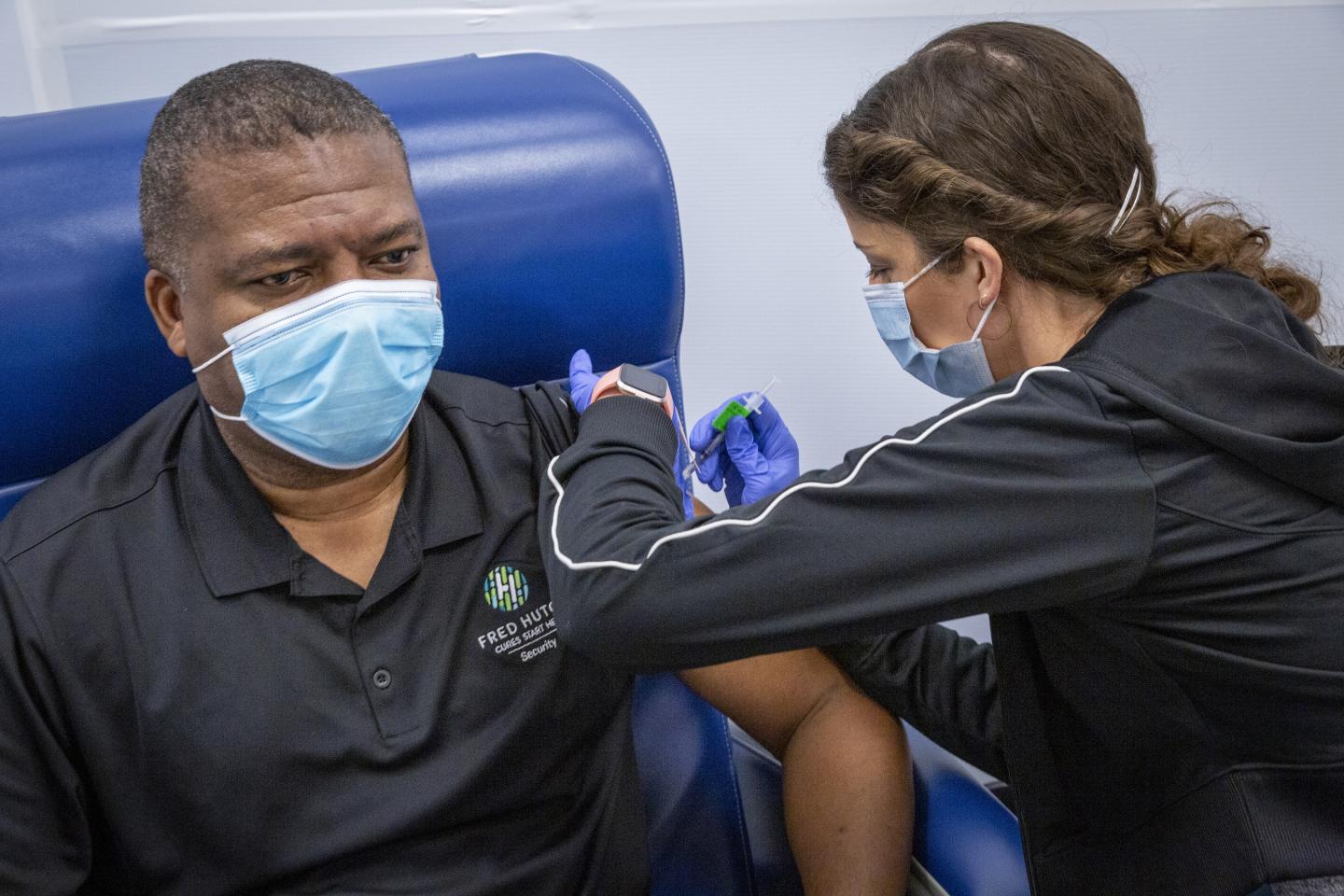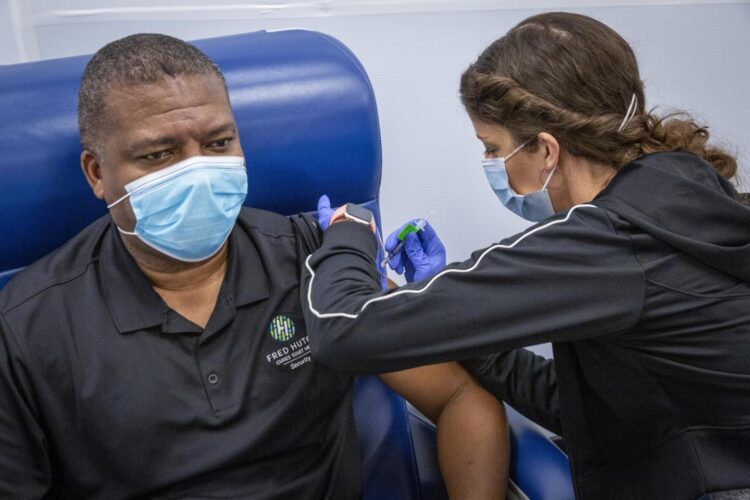Analysis shows certain racial/ethnic groups and older people aren’t being adequately represented and trial reporting guidelines aren’t being followed

Credit: Photo by Robert Hood / Fred Hutch
SEATTLE — February 19, 2021 — A team of scientific experts from across the U.S. and Puerto Rico are advocating for increased diversity in vaccine trials after publishing a new report that highlights a decade’s worth of disparities. The new study, published in JAMA Network Open, found that among U.S.-based vaccine clinical trials, people who are Black/African American, American Indian/Alaska Native, Hispanic/Latino and age 65 and older were the most underrepresented groups. Conversely, adult women were overrepresented.
The research team examined 230 U.S.-based vaccine trials of all phases, with nearly 220,000 participants from July 2011 through June 2020. The researchers found that many trials did not fully report demographic information, and for the studies that did, racial and ethnic minorities were frequently underrepresented as were older adults. Top findings from their analysis of the studies that reported demographic information include the following:
- White people accounted for 78% of all participants
- Women accounted for 56%
- Black/African Americans accounted for 11%
- American Indians/Alaska Natives accounted for 0.4%
- Hispanics/Latinos accounted for 12%
- People 65 and older accounted for 12%
Asian and Native Hawaiian/Pacific Islander participants were equitably represented in vaccine trials compared to the U.S. population.
“The COVID-19 pandemic and its devastating impact, particularly on BIPOC (Black, Indigenous and people of color) communities and older adults, is a painful reminder of the health disparities in our country,” said Dr. Steve Pergam, an associate professor in the Vaccine and Infectious Disease Division at Fred Hutchinson Cancer Research Center and one of the corresponding authors of the study). “This collaborative work highlights a problem that’s plagued the scientific community for too long — inadequate representation in clinical trials. The diversity seen in COVID-19 vaccine trials demonstrate we can do this, but we need to assure future studies focus not just on rapid enrollment but also on inclusion.”
The research team also discovered that problems with capturing and underreporting participant demographics remain, despite efforts from the National Institutes of Health and Food and Drug Administration to implement policies and guidelines.
“Going forward, we need to ensure all vaccine studies report demographic information,” said Dr. Julie Silver, one of the senior authors on the study and an associate professor at Harvard Medical School in the Department of Physical Medicine and Rehabilitation. “Although we have some missing data, it is clear from the large number of studies which did report this information, that racial and ethnic minorities as well as older individuals are frequently not being equitably represented.”
The authors insist improving racial and ethnic diversity in clinical trials is important because enrollment may impact vaccination rates among minorities.
“Vaccine hesitancy and a lack of understanding about safety is a major challenge we’re facing with COVID-19,” said Dr. Michele Andrasik, a senior staff scientist at Fred Hutch and study co-author who also leads engagement efforts for the COVID-19 Prevention Network. “By improving enrollment diversity, we can better engage these underrepresented groups early in the trials stage and address the education and trust issues.”
To address this problem, the National Academies of Sciences, Engineering, and Medicine recently set up a committee dedicated to improving the representation of women and underrepresented minorities in clinical trials and research. Dr. Carlos del Rio, distinguished professor of medicine at Emory University School of Medicine and co-author of the study, is a member of the committee.
The authors also suggest future trials emphasize the inclusion of older men and women. The aging of the population in the US and many other countries requires testing vaccines in older adults. As the current pandemic has shown, diseases like COVID-19 disproportionately impact older adults, especially those in long-term care facilities.
###
Fred Hutch researchers are playing a leading role in an international scientific response to the pandemic — tracking the virus’s global spread, developing diagnostic tests and monoclonal antibodies that neutralize the virus, designing and evaluating COVID-19 vaccines in early and late-phase clinical trials, and working to better understand how the human immune system can provide durable protection and prevent future outbreaks. Even as the scientific community rapidly works towards vaccines and treatments, we can all do our part to keep our communities safe right now by wearing face coverings and maintaining physical distancing. For more information, visit Fred Hutch’s Coronavirus Overview.
DISCLOSURES
None of the authors had disclosures or conflicts of interest related to this study. Unrelated to the study, Andrasik, co-authors Drs. Walter Frontera and del Rio disclosed receiving funding from the NIH.
Pergam reported receiving grant support from Global Life Technologies Corp., participates in research trials with Chimerix Inc. and Merck & Co., and currently participates in a clinical trial sponsored by the National Institute of Allergy and Infectious Diseases (U01-AI132004); vaccines for this trial are provided by Sanofi (all outside of this submitted work).
Silver reported funding from The Arnold P. Gold Foundation and the United States-Israel Binational Scientific Foundation.
Media Contact
Tom Kim
[email protected]
Related Journal Article
http://dx.





